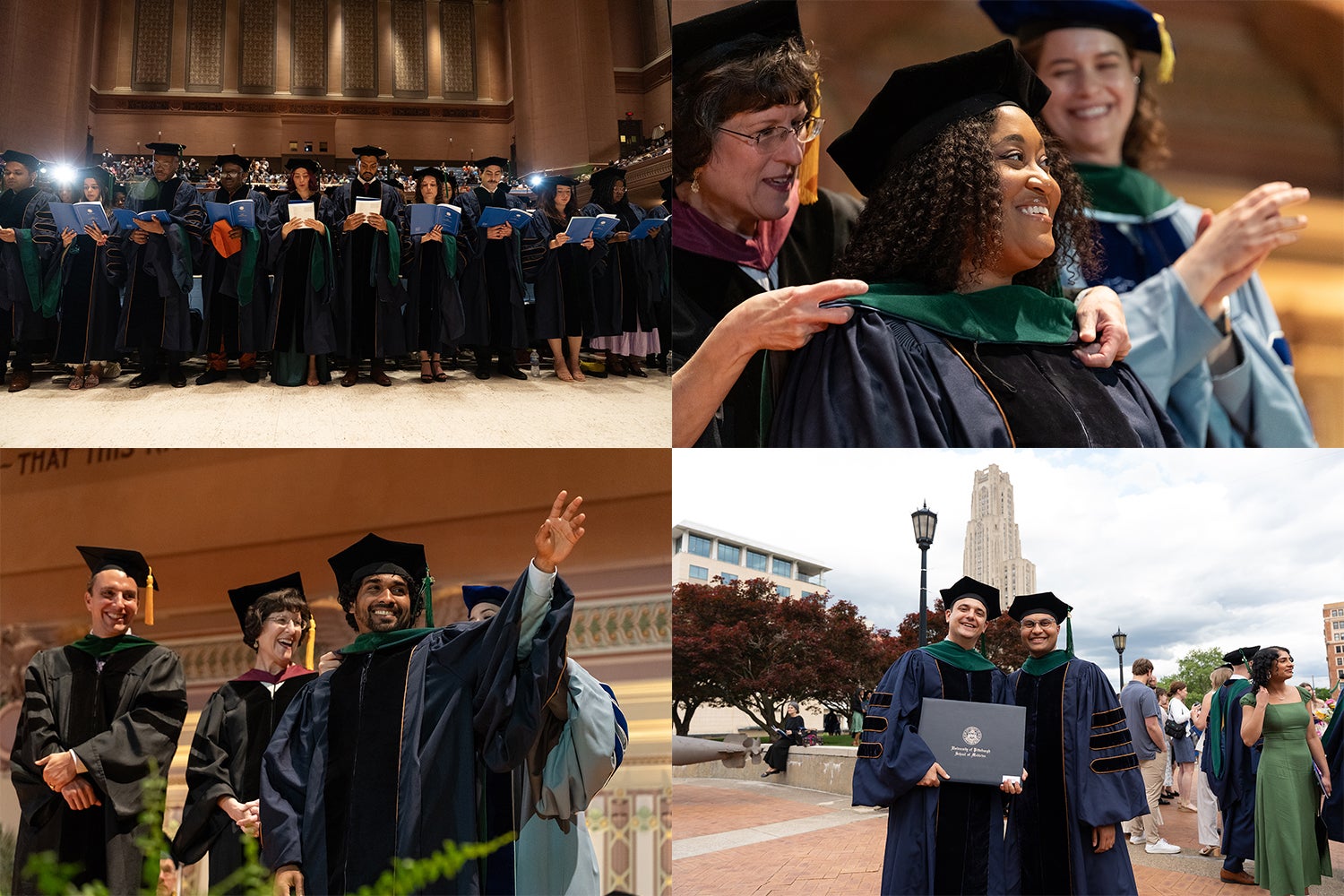By Phoebe Renda
Photography by Rayni Shiring/University of Pittsburgh

On May 18, 2025, University of Pittsburgh School of Medicine students, joined by jubilant friends and families waving flags, ringing cowbells and holding pictures, gathered at Soldiers and Sailors Memorial Hall and Museum to celebrate their years of hard work during the Diploma Day ceremony for the 138th graduating class.
“You are carrying on a tradition of scientific evolution; you are carrying on a tradition of healing,” said Anantha Shekhar, senior vice chancellor for the health sciences and John and Gertrude Petersen Dean of the School of Medicine, in his salutation.
The school conferred 140 medical degrees, 66 doctoral degrees, 77 master’s degrees and 18 certificates.
MD graduates are headed to 23 individual states for their residences in areas of primary care (33%), hospital-based care (40%) and surgical care (27%). Fifty-one graduates are staying in Pennsylvania, and 41 of the 51 are doing their residency at a UPMC hospital.
During their time at Pitt, graduates of the school’s graduate studies programs have been deeply involved in research enterprise, and their dedication to knowledge has generated novel discoveries.
“We learned that failure isn't the opposite of progress—it’s a part of it—the questions that kept us up at night were often the ones worth pursuing,” said PhD graduate Rithika Behera in her graduate student address. “In a world increasingly shaped by science, health and uncertainty, the knowledge we’ve built has the power to save lives, reshape systems and expand human understanding.”
For those receiving degrees in graduate studies, 53% are entering careers in academia and 20% in for-profit industry. Twenty-five percent have earned their PhDs and will continue on to their medical training as physicians to complete the MD/PhD program.
In his keynote address, Myron Rolle—a Harvard-trained neurosurgeon, Rhodes Scholar, bestselling author, former NFL player and pediatric neurosurgery fellow at Johns Hopkins All Children’s Hospital—encouraged graduates to embrace a goal of aiming to get 2% better every day. By making small, daily improvements in their skills, mindset and focus, those incremental gains will lead to lasting excellence.
“Be a quadruple threat: a good clinician, a good researcher, a good educator and a strong advocate,” said Rolle.

